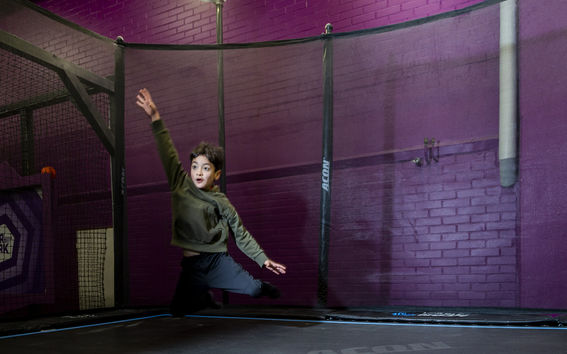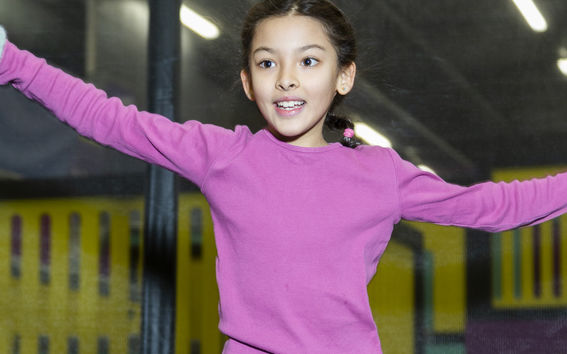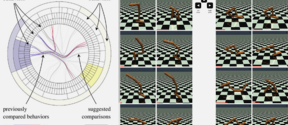A lighter path to exercise


A little digital magic is all it takes to give young Norah and Nelson a taste of what it’s like to have superpowers.
The siblings are trying out the mixed reality trampoline games at SuperPark Vantaa. The games were developed by Valo Motion, a company founded in 2016 to commercialise research at Aalto University on mixed reality exercise games.
The trampoline the kids are using is integrated with a computer vision system that tracks a person’s movement as they jump. Those movements control their avatar—a representation of the user—on a nearby screen. The combination of the real-world gymnastics equipment with this kind of technology creates a unique interface for a range of custom video games.
Click to the story from the link below!
A lighter path to exercise (aaltouniversityshorthandstories.com)
This article has been published in the Aalto University Magazine issue 30 (issuu.com), April 2022.
Read more news
A survey on users' experiences of Mykanta in collaboration between Aalto University and Kela
Senior university lecturer Sari Kujala's research group is exploring, in collaboration with Kela, users' experiences with the Mykanta online patient portal and the MyKanta mobile application.
Miten elokuva- ja av-alan menestystä johdetaan? Uusi tutkimushanke tukee alan kasvua ja kilpailukykyä
Aalto-yliopiston elokuvataiteen laitoksella käynnistyy Business Finlandin Co-Innovation-rahoituksella toteutettava 1,6 miljoonan euron SmartSuccessAV-tutkimushanke. Tavoitteena on tuottaa uutta tutkimustietoa siitä, miten menestystä elokuva- ja AV-alalla johdetaan ja miten päätöksenteko rakentuu tuotanto-, rahoitus- ja jakelurakenteiden muuttuessa.
Better AI models by incorporating user feedback into training
New research improves a popular method for fine-tuning AI models by 60% using visualization tools.






